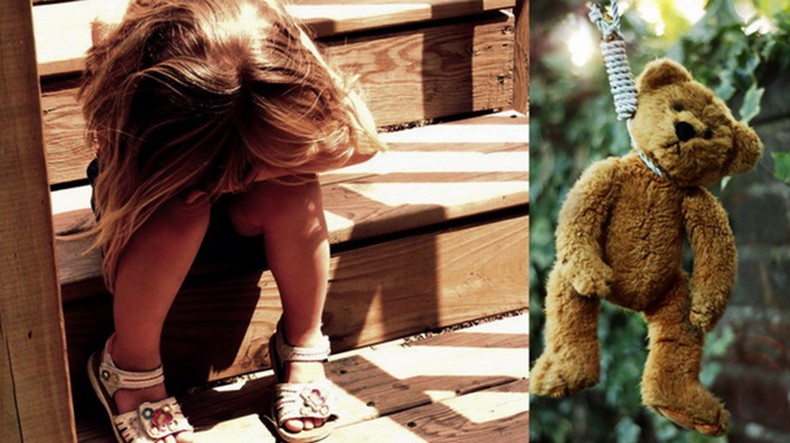
Increasing number of early marriages, suicides of children, low education level current problems in Azerbaijan
The number of early marriages has recently seen a rise in some districts of Azerbaijan, several Baku villages, Hijran Huseynova, the chairperson of the State Committee for Family, Women and Children Affairs, said, according to the Azerbaijani news agency Report.
Speaking at an international conference on ‘Strengthening of efforts to prevent early marriages,’ attended by representatives of Azerbaijan, Afghanistan, Tajikistan, Uzbekistan, Turkey, Iran and other countries, Huseynova noted that the girls who marry at an early age are more often subjected to violence. She noted that for some period, reduction of number of early marriages was observed in Azerbaijan, still it recently increased again.
She also added that the 11 regional children and families support centres, operated by the State Committee for Family, Women and Children Affairs, have registered 20 cases of early marriages over the past two years preventing 17 of them.
Andro Shilakadze, the UNICEF representative in Azerbaijan, said he did not understand the parents who force their children, still playing with toys, into marriage. “Statistical data show that cases of death of newborns and mothers in childbirth are more often with young mothers,” he said during the conference and added that 25 thousand children are being married at early age every day. He highlighted that the main reason is the illiteracy and economic problems.
Mubariz Ghurbanli, the chairperson of the State Committee for work with religious organisations, added that some radical-minded people want to link early marriage with the religion. “Still, no one can show where it is written in Quran. Those citing hadiths should know that most of them are not authentic,” he pointed out.
APA news agency reports that Maleyka Abbaszadeh, the chairperson of the State Students Admission Commission, said during the conference that the recent years have seen a decline in the number of girls submitting documents for enrolment at higher education institutions. “This year, 49 thousand boys and 43 thousand girls submitted their documents to institutions of higher education. But the girls were more active in being enrolled,” Abbaszadeh noted.
In addition, she said that, in 2004, over 125 thousand children born in 1998 and1999 were enrolled at first grades of school 50 percent of them being girls and 50 percent boys. “Nine years later, during the final exams, it became clear that 3.5 percent of them had not even studied till the 9th grade. This means that over 4,500 children were not able to receive compulsory education. Of them, 600 are boys, and the rest are girls. This process is on every year,” she highlighted. She noted that out of the 100 girls going to secondary schools in Baku suburb Nardaran, only 10 study up to the 11th grade.
Idris Isayev, the deputy Minister of Labour and Social Protection of the Population, said that out of 84,912 marriages registered in Azerbaijan in 2014, 479 were with girls under 18, and 2 with boys under 18.
He also noted that 61.6 percent of the children born to mothers, who are not officially married, were in rural areas. While the number of the children born in illegitimate marriages prevailed in urban areas in the 1990s, the figure has started to be prevalent in rural areas since 2003. According to the deputy minister, researches showed that most of the students leaving schools are girls who go into early marriages.
“In 2014, 170,503 children were born in the republic. Out of them, 3,296, including 1,054 in urban areas and 2,242 in rural areas, were born to mothers aged from 15 to 17. What is troubling is that this is the second childbirth for 279 mothers (15 to 19 years of age), and for nine of them, it is the third time. 158 mothers aged 18 and 19 gave birth to their third child,” Isayev said. He noted that early marriages are mainly widespread in needy families.
Speaking at a conference on ‘The strategic objectives of the education in Azerbaijan and problems the pedagogical science faces today,’ Firudin Gurbanov, deputy Education Minister of Azerbaijan, said those working in the education system of the country should view their work not only from the angle of material prosperity. He said the students should be approached individually in every school because the cases of suicide among young people and children have recently become frequent, APA reports.
According to Report agency, Firudin Gurbanov also said the results of the exams taken by students from the 9th to 11th grades and held by the State Students Admission Commission show that the quality of education is not on a proper level. The deputy minister also noted that the number of the enrolees getting very low marks during entrance examinations has recently increased. The recent years have also seen a decline in the number of first-grade students at schools.
At the beginning of 2015, the UN Committee on the Elimination of Discrimination against Women considered the fifth periodic report of Azerbaijan on its implementation of the provisions of the Convention on the Elimination of All Forms of Discrimination against Women. The issue of high and prevalent rate of early marriages in Azerbaijan was raised. It was pointed out that those marriages cause drop-out of school, particularly among girls in the ninth to eleventh grades. An expert noted that the troubling phenomenon of girls as young as 12 and 13 years leaving school to get married continued, despite the amendment to the Criminal Code. A delegate from Azerbaijan responded that the State had no information of any marriages involving children as young as 12 or 13. The experts also said that unregistered marriages, which were usually religious marriages known as Kabin, continued to be a serious problem. The issue was particularly grave for children of such marriages who were considered ‘illegitimate’ and could not be registered with the State.
Newsfeed
Videos






























